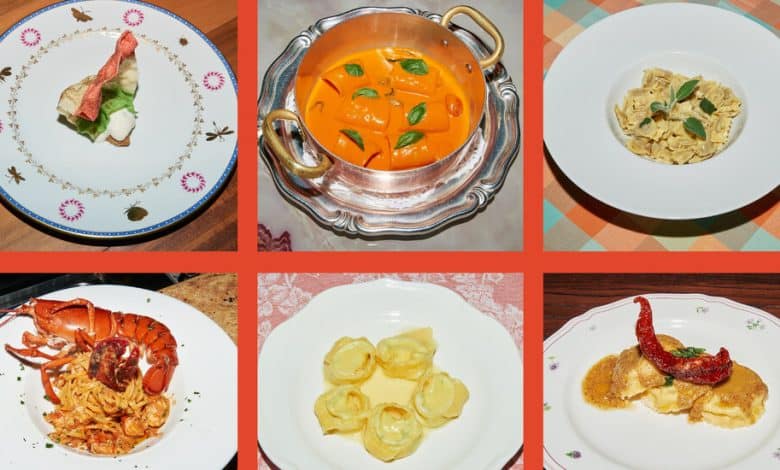The 25 Essential Pasta Dishes to Eat in Italy

For a food that begins with just flour, water or sometimes eggs, there are infinite variations of pasta. So what happens when you convene a panel of five Italian cuisine experts and ask them to determine the 25 most essential pasta dishes throughout Italy? “I’m sweating,” said Davide Palluda, the chef and owner of All’Enoteca restaurant and osteria in the Piedmont region. “This is too heavy,” he joked during the two-hour video call that I convened to debate his nominations and those of the four other panelists: Stefano Secchi, the chef and a co-owner of New York City’s Rezdôra; the Tuscany-based cookbook author Emiko Davies; the Umbria-based culinary historian Karima Moyer-Nocchi; and the food writer and novelist Roberta Corradin, who lives in Florence, Sicily and Boston. A week before our call, I’d asked each to make their own list of 10 standouts (since he was a panelist, Palluda’s restaurants were automatically excluded); after an energetic debate and several more phone calls, emails and WhatsApp messages, we whittled that list in half. The final picks appear below in unranked alphabetical order, along with the ideal wine to drink with each pasta dish, as recommended by the chosen restaurants and reviewed by Davies’s husband, the sommelier Marco Lami.
This list is thelatest in our T 25 series, which highlights significant achievements in the worlds of design, literature, fashion, architecture and food. Previous debates about where to eat right now were confined to major cities like Paris and Mexico City, but this time around, we wanted to see what we might learn if we surveyed the culinary landscape across an entire food-crazed country. We chose pasta because it’s the food most associated with Italy, and because it’s the subject of T’s new Travel issue. It’s also the staple that reveals just how much Italian cooking, even in 2024, remains firmly anchored to a specific place. While most countries have regional fare, Italy is particularly fixated on a recipe’s exact provenance — the town, the valley, the strip of coastline — which is why you’ll often find different pasta shapes or sauces, even over the span of just a few miles.
This culinary diversity informed many of the panelists’ decisions: sometimes, they opted to include a dish because it’s rarely made beyond its birthplace (see Lombardy’s pizzoccheri, No. 12); other times, they chose a favorite sauce (for example, carbonara) or simply a type of pasta like strangozzi (typical of Umbria) since it, like so many local specialties found in the countryside, is paired with different ingredients depending on the time of year.
Only two specific dishes were nominated by more than one panelist: the agnolotti del plin at Madonna della Neve in the Piedmont and the vincisgrassi at Osteria dei Fiori in the Marche region, both centuries-old dishes served at decades-old restaurants. The classics, in general, came up again and again. Even the more idiosyncratic dishes that merited inclusion were riffs on familiar fare: Secchi, for example, made an impassioned plea for the dish called the Crunchy Part of the Lasagna, the chef Massimo Bottura’s technical take on the beloved casserole, offered at his Francescana restaurant at Maria Luigia in Modena, Emilia-Romagna. “If we’re talking about transcendent pasta experiences, that’s it,” Secchi said. (Lasagna, in fact, made a strong showing on this list, which features three varieties.) Secchi suggested one reason the old favorites took primacy: relentless demand.
Northern and central Italy are also overrepresented, perhaps because that’s where most of the participants are based, though Corradin argued that she could easily make an entire list dedicated to any region. And Palluda worried about omitting gnocchi, though there was some disagreement about whether the dumplings usually made with potato and flour are even considered pasta. But Corradin had the final word: “No. Gnocchi is gnocchi. It’s a different chapter. Next time.” — Deborah Dunn
The interview portion has been edited and condensed.
1. The Agnolotti del Plin at Ristorante Madonna Della Neve
Cessole, Piedmont

Credit…Enea Arienti
